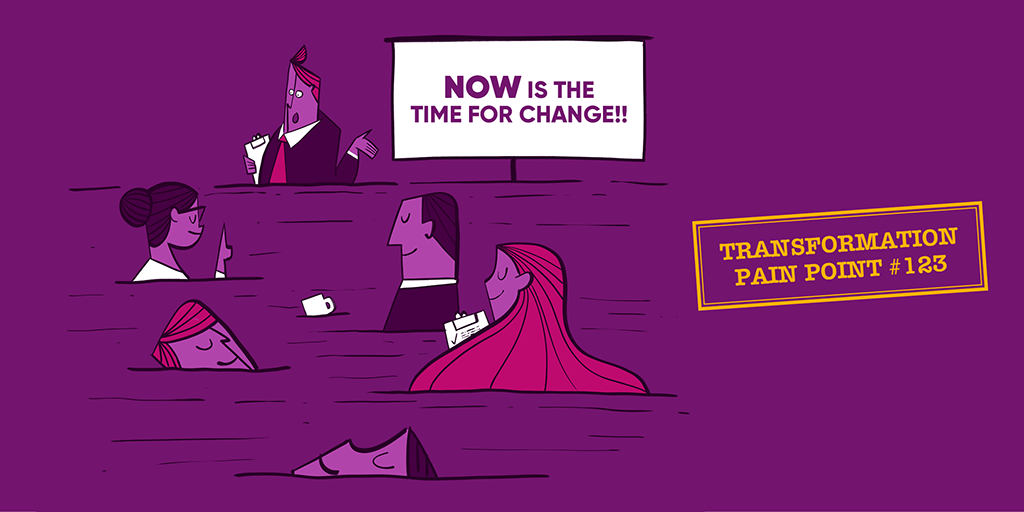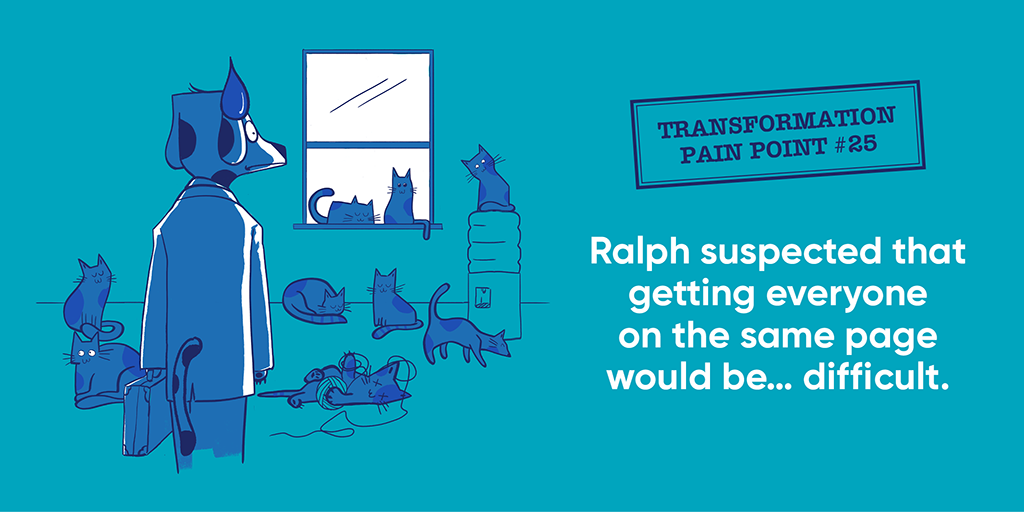Insight article

Discretionary distraction: The barrier to reaching your transformation ROI
Some reports say that over $2 trillion is currently being spent on transformation initiatives around the world. Whilst 10 years ago companies were undertaking this kind of initiative every 5-10 years, they are now doing it every two. It is undoubtedly a revolution of industrial scale. It’s also a lot of money to waste.
Back in the 90’s John Kotter announced that around 70% of major change initiatives failed to reach their intended goals. Nearly three decades later, research by Oxford University and EY shows that 67% of senior leaders have experienced at least one underperforming transformation in the last five years. It’s a damming statistic, but does it keep your average Chief Transformation Officer up at night? Probably not! No one believes their programme will be the one to fail, and anyway, if underperforming means not realising your long-term goals, then the cynic will point out that by that time the organisation will be onto the next wave of change.
But there is a more immediate challenge to overcome. Most transformation initiatives are designed to increase productivity in some way. But to get there, people need to learn to do things differently, which is unproductive. So, the key is to make this process, from the old to the new, as fast as possible, which in turn requires large amounts of discretionary effort. Engage people in the right way and you unlock this effort. Fail to engage people in the right way, and you create ‘discretionary distraction’ – where people spend time and effort worrying about and discussing the future. This slows the process down and increases the risk that KPIs are not met and the return on investment is delayed.
Discretionary distraction arises when people don’t have a clear story about why they are being asked to change, what way this change will benefit themselves and their customers, and how they can play their part and make a difference. And, as the research from the 90’s and 20’s consistently shows, this story and the process of change activation has to be done at an emotional level.
Storytelling is a proven way to engage the hearts and minds of people – master this, what we like to call the heart of transformation, and you will activate your people and accelerate your transformation KPIs.




